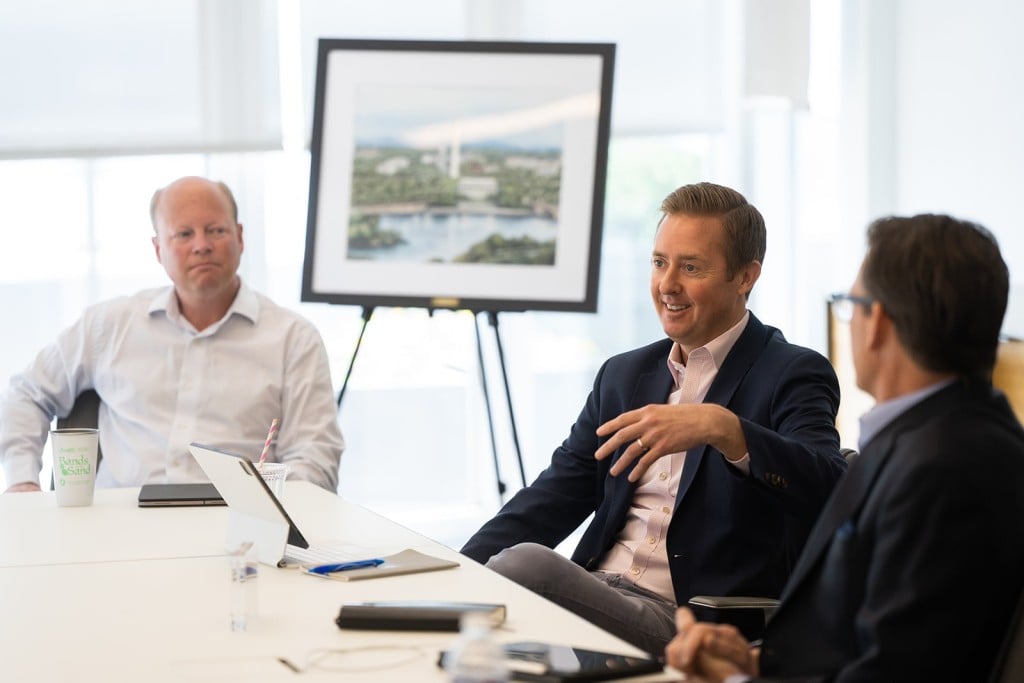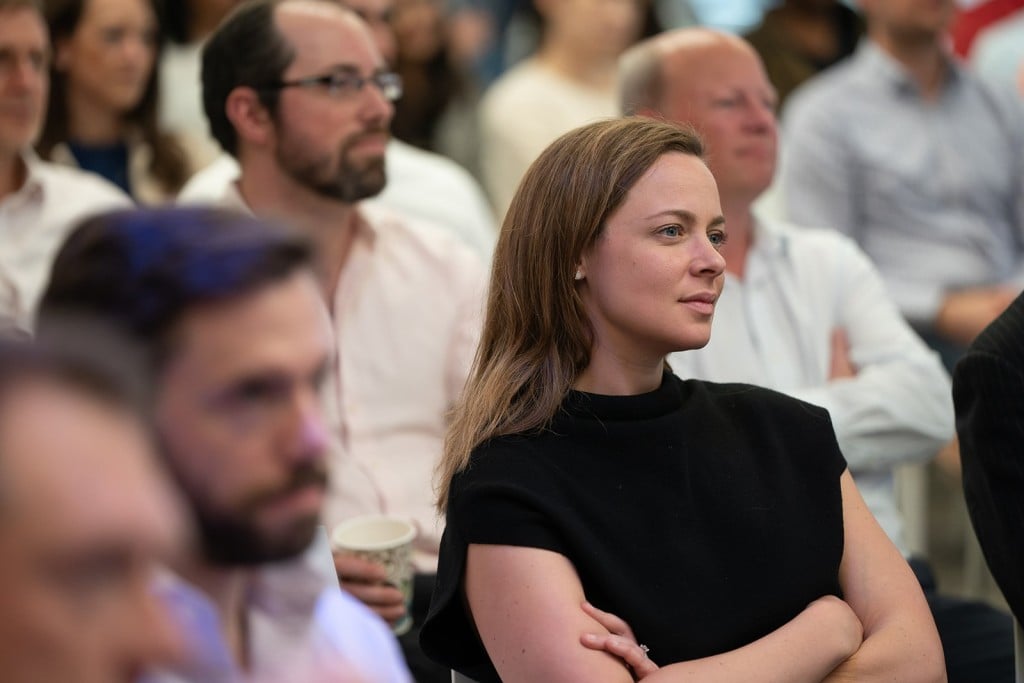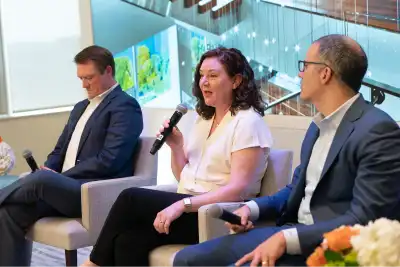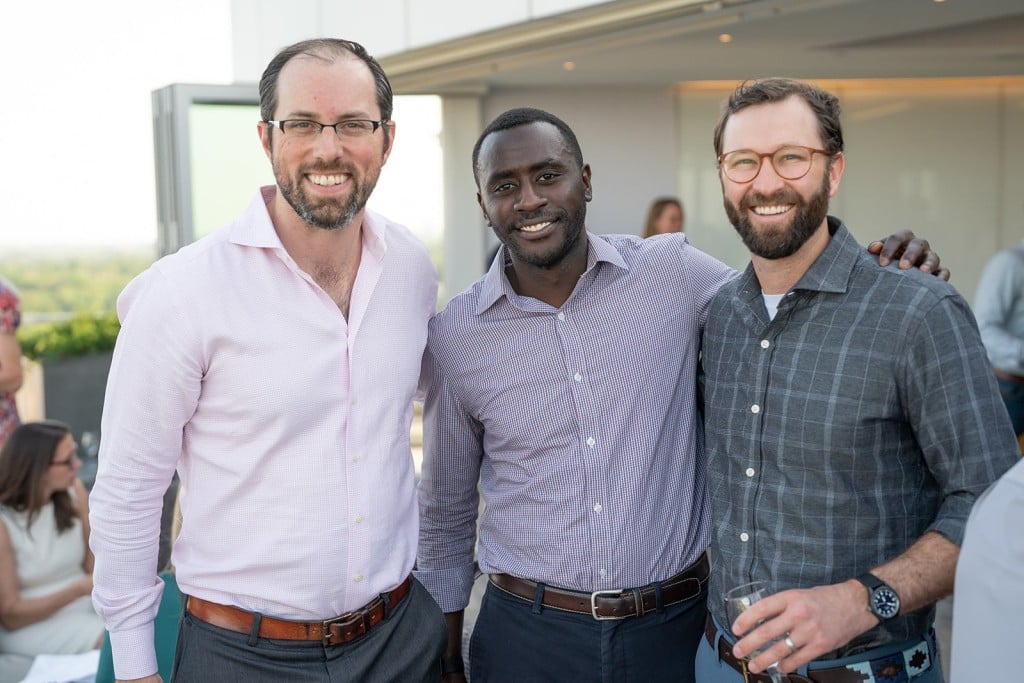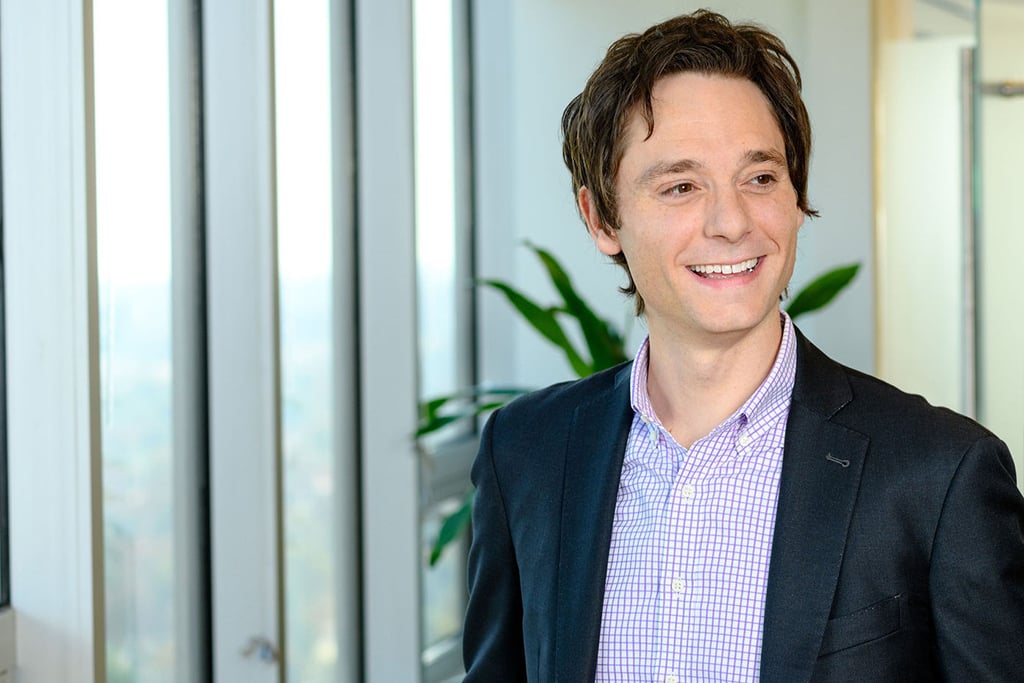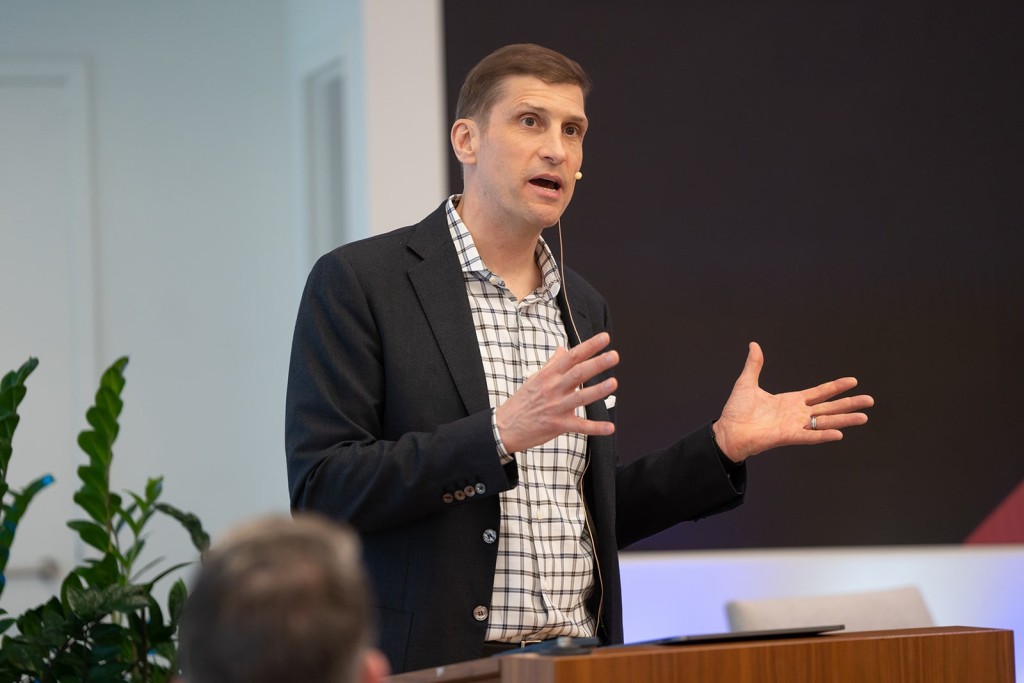Related Articles
Managing a team of analysts is no easy task, explains Michael Raab. It’s a diverse opinionated group charged with creating the investment ideas that can add value for clients. Cultivating a culture that supports this creativity is an ongoing endeavor.
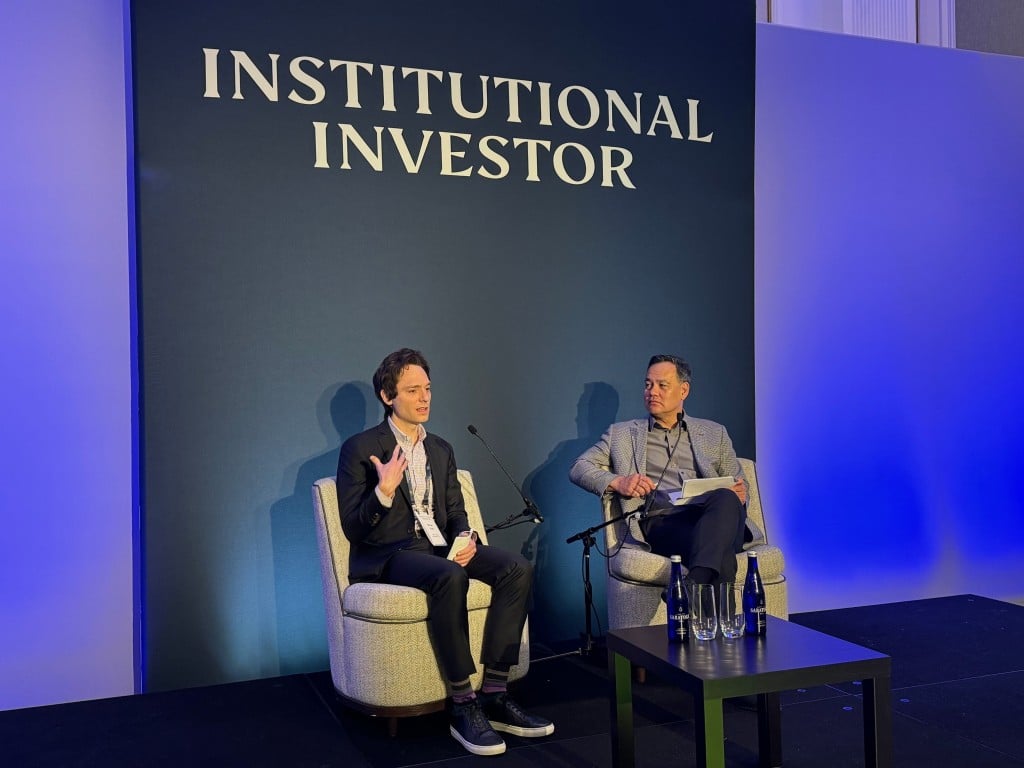
Sands Capital Director of Research and Portfolio Manager Michael Raab, CFA, recently spoke on Assembling the Right Investment Team and Fostering a New Corporate Culture, a session that was part of Institutional Investor’s East Coast Sub-Advisory Roundtable in Boston. The following are some of the questions posed to him.
Michael Raab: I’ve been at Sands Capital for 17 years now. I have had all the roles on the research team—from associate to analyst to portfolio manager to director of research. Now, I’m spending more of my time in this role in which I basically assemble and then optimize a research team. It’s not an easy task.
What’s surprised you most in this role?
Michael Raab: I moved into this role within the past year, but I had been managing analysts before this. A lot of people who are trying to get into investment management ask me what surprised me. It’s the people. They all have their own personalities. They’re highly opinionated. We don’t make widgets; we create ideas. And here’s the funny thing, especially about investment professionals: Every single one of them thinks that their way is the right way. Every single one of them. So you have to manage that conflict internally.
Could you describe your organization, the organizational structure, and the team dynamics that you have?
Michael Raab: The first thing you need is a clear investment philosophy. Then, you need to create a culture and organizational structure that support that philosophy. And that can change as the makeup of your team changes. Is it an inexperienced team? Is it an experienced team? How big is it? Then, you basically need to say, “Where am I? What do I need to do?” At Sands Capital, we are growth managers of long-term concentrated portfolios. So we need to create a framework to make that fit, and that is the challenge.
Managing a concentrated portfolio was a bit more difficult in the kind of environment we’ve had for the past 10 years. Were you ever tested on that by your organization?
Michael Raab: On that front, no. Our investment philosophy is very consistent. We’ve had it for 30 years, and it’s untouchable. Your culture is consistent over time. Your structure is the one thing that can change, but if you are messing with your philosophy, it’s probably a sign that something is going wrong with management.
As firms build teams, they often use symbols within the organization to reinforce them. That could be the employee handbook or a “place map.” Do you have anything like that that helps people ground themselves in terms of what they’re trying to accomplish?
Michael Raab: We have our Sands Capital values, which are printed and framed on everyone’s desks, and we have our founder, Frank Sands Sr. I had the privilege of knowing him. He passed away a few years ago. But really, we live our values daily. We have a low tolerance for behaviors—be they your attitude in the hallways or how you think about investments—that don’t fit with our culture. We try to stamp out certain behaviors immediately.
It can be tough in investment management. You see the full spectrum of behaviors. You have eat-what-you-kill aggressive personalities—the kinds that are portrayed in the media, but that is the complete opposite of what we are at Sands Capital, which is very collaborative. If you’re trying to talk long-term investments, it is easier said than done. So we’ve tied compensation to it and all those things, but the cultural reinforcement is the real edge.
I’ll give you an example. For most of our analysts, we tie compensation to rolling five-year results. If an analyst recommends a business that is put in a portfolio, they have to be assured that they will not draw the ire of the team if that business is down 10 percent in its first earnings report. Finger-pointing and public ridicule would turn an analyst’s focus from the long term to the short-term goal of avoiding humiliation in front of their teammates. That just does not lead to a good result. Because in downturns, your biggest risk is that your team is gun-shy, so you change your investment philosophy and hide in safety. To avoid that and keep a long-term perspective, you have to live that every day. You can’t just write it down on a piece of paper.
You probably have multiple generations of employees, right? There’d probably be folks who are much further in their career, the Gen Xers who believe nobody cares about them. And then you have the millennials. How do you navigate that in that environment?
Michael Raab: It’s interesting. I’m about as old a millennial as you find, so I see that generation. But now there’s a younger generation. They’re different. You need to manage them differently. Some people who are of an older generation don’t like managing those folks. So there’s an element of thinking that we’re good at certain things, so try not to make people do things they’re not good at because usually someone else is good at that. And that’s a change for Sands Capital.
For example, some people have 25-plus years of experience. So for the people who have more experience, you try to give them even more autonomy in what they’re doing, and for the people with less, you’re maybe a little bit more prescriptive. It’s not a one-size-fits-all approach.
The COVID-19 environment was a challenge because there was a whole group of people who thought they would never have to come into the office. It’s normal. But we have moved back to the office a few days a week. Personally, I believe that as an investment professional, there is so much to gain from being in the office, from being able to haphazardly pop into someone’s office, which is very different than scheduling a Zoom call.
Do you find the older generation embraces the hybrid environment and wants to work from home more than the younger generation?
Michael Raab: It really depends. I have two little kids, and I’ve got to tell you, when the hybrid workplace started, I couldn’t stand it. There was crying in the house and everything. So I haven’t seen a pattern there. But it is nice as a research professional. There are some days when you really need to read or write. And actually, being physically in the office might be harder for you.
But in the middle of the week, we’re all there. We try to give people flexibility. But what we’ve actually seen is people not being forced to, but increasingly spending more and more of their time together.
How do you manage all your relationships with your stakeholders, both internally and within the asset management community?
Michael Raab: Our founder had a very important insight. He felt that investment professionals needed to interact with clients in the rest of the industry because it’s pretty easy to get lost in this process where you can get lost in your spreadsheets, and you see these tickers, and you end up playing a game and forget that there is someone else experiencing the results on the other end. So all our investment professionals—not just the portfolio manager but all the way down the line—have interactions with clients, decision-makers, and research teams. I think that experience starts to align with that stakeholder culture. There’s a bunch of other little things, but I think that’s the most important one.
Analysts sometimes make great decisions, but sometimes they’re a little bit too enthusiastic about their capabilities. In that moment, a good truth serum would be to take them out to a meeting with financial advisors and try to navigate the question: “Hey, your performance is terrible, right?” When you let them experience that, they get a little bit more uncomfortable about their enthusiasm, right?
Michael Raab: Yes, and the humility is so important. I mean, this industry will humble even the most prideful person at some point. And it’s funny … we have a saying that everyone needs to experience a massive blow in their career before they can be a decision-maker on a portfolio. Without that experience, you just don’t get it. They are terrible experiences, but they are enlightening. We all grow and learn from them and become more well-rounded investors because of them.
With regard to the stakeholders, what’s the political dynamic that you deal with within your organization?
Michael Raab: You try to rid yourself of all that. It’s just a purist’s pursuit of excellence. But I think the best way to handle that is trying to make it so everyone remembers the common goal and the shared purpose that you have, and that is to add value for clients with prudence over time. What else would it be? And we have our investment criteria that guide us. You try to depersonalize the process so that it is not my thesis or your thesis that we are debating, but our thesis. Our portfolio managers have analyst titles, and that’s the most important title. Analysts act like portfolio managers, so if you were to come and see us debate, you might have a hard time picking out who was who in the room. And I think when you function like this, you can start to make it less political, and it’s just more of a pursuit of what our criteria tell us is appropriate. That is super hard to do.
We stopped calling these big meetings “vetting sessions.” They’re review sessions. Our decisions are often made along the way, and that’s one of the hallmarks of our process. The best decisions are made in groups of three to six or seven people. Beyond that, the effectiveness kind of dips. When you can create an environment in which you are able to flatten the structure, you remove the politics that can emerge.
Can you talk about how you source talent? Investment managers are all probably after the same talent. What are you looking for?
Michael Raab:I think the first component that you need on an investment team is the passion for investment management. Every person who does it has some thing. There’s a story about how they got into it, and it’s usually some big draw because there’s no textbook on how to be a research analyst.
You learn on the go. How can you learn how to research how many units a company’s going to sell? You don’t just read a few reports and visit the store. You have to be creative. You need to be a self-starter, and the most important thing is passion.
Here’s the problem: I think it’s innate in some people. You can take the horse to the water, but you can’t make the horse drink. You can then cultivate that by ensuring that people really buy into the culture, the mission of the firm, and so on. But you need to find people who are deeply passionate. I’ve met some investment professionals who I don’t think could do anything else. But you could put them in some other role, and they’re just constantly thinking about this. And I have that bug, so you can start to spot that in other people. You can ask them questions to see how truly interested they are. Because if you don’t have that passion, nothing else is going to matter. And it won’t be a sustainable job.
People think this is a cushy business. Here we are staying at a nice hotel. Last night, we had a nice dinner with colleagues who were attending a robotics conference. We spend time meeting management teams and reading the Wall Street Journal. But this is a tough, tough business. It’s really tough, and it’ll wash you out if you don’t love it.
So you’ve got to look for the right people. You’ve got to look for passion in the person and the ability to learn?
Michael Raab: That’s the resiliency that we were talking about before. To know how to fail.
Some firms try to hire analysts that they want to see grow within the organization. Your approach is a little bit different. Could you describe it?
Michael Raab: We have two models. We have people who start as a research associate who work with a supporting analyst in a mentorship model. We mix this with bringing in other analysts who have had some experience. Combining these approaches has yielded the best results for us.
But the other challenge with investment management is that, often, getting a job as a research analyst should be considered the pinnacle of their career. But some people think they have to be a portfolio manager and believe it is a more prestigious position. But we want to encourage some people to remain as analysts if that is the right seat for them. We have tried to make that position as important as the portfolio manager role, so they are not just trying to climb some ladder. And that is a challenge, especially from the outside world, where portfolio managers are sometimes viewed as more important. But I will say that a valuable analyst is very important.
Your firm has grown in terms of assets under management and number of products offered. How have you approached that? How does your organization use culture to drive the product role?
Michael Raab: At our core, we are only doing one thing. So it may look like there’s a lot of products, but they are all anchored on the same six criteria. It’s the same investment philosophy, and it’s the same core analyst team doing all of it, and then it just ends up being the assembly of the ideas packaged in a certain way, whether that be by regional application, global application, or even the sector in some cases. So it looks like it’s a lot more than it really is. If we started to have product proliferation into value, that would be more of a concern.
Yesterday, we had a little session about the use of technology. You know, how do you think about that? How do you incorporate it into something that you’re talking about today?
Michael Raab: I wish I had a great answer to “Where are you on that?” but you know our founder used an abacus and handwritten spreadsheets. I think there are clear efficiency gains in artificial intelligence (AI), and we have a group that’s working on applying AI to a lot of the mundane tasks that eat up people’s time. Essentially, we are paying our team to think—not to just process the news and write notes. We are looking at ways to use AI to speed that up with Microsoft Copilot. However, I’m worried that might just create more inputs. In terms of what we do with regard to long-term investing, I have yet to see the new thing that will make us better investors, but there is likely more to come on that front.
So playing with it, seeing what it’s like, but really staying close to your knitting, right?
Michael Raab: We’re not about the information edge on the next quarter or two. Our biggest advantage is just focusing on the big things that matter, which usually isn’t because of one little data point, and then having the ability to have time arbitrage. It sounds silly, but it is so hard to be long term. Forget the incentives; I talked about the cultural ones, but just as human beings, we’re just not conditioned to do that. We’re so conditioned for the near-term satisfaction that it’s hard to be able to say, in five or 10 years, this is going to play out. That’s where we add most of our value. And I can prove that if you look at the statistics. If you have a company that can grow just 15 percent earnings, it will double earnings power for five years, that doesn’t double your earnings power. Ten years, that’s four times 15, here’s eight, keep going. That is 100 percent not reflected in the stock price. You should be willing to pay 50-plus times next 12 months earnings. You don’t see that.
Any words of wisdom for people trying to build resilient teams?
Michael Raab: One thing I have realized is that most people who get into the business have incredible academic histories, and they have been told they are great so much.
But they are not used to 60 percent hit rates, which you often get in investment management. So they need to be able to take the lumps and come back and fight. One of the great UVA [University of Virginia] basketball coaches Tony Bennett asked when recruiting, “Can I lose with this guy?” Translating that into our industry, you have to ask whether you will be able to go through a downturn with this person. There are some people who cannot handle that and will become toxic for a team. If you are a long-term growth investor, you need a team that will be able to rebound. At the beginning of the recruiting process, you need to try to suss that out to see if they have a pattern of resiliency. You have to focus on the character, not just the shiny resume and obvious smarts. You really need to have the right mix of common sense and passion. Just keep in mind that the star high-IQ person whom you cannot lose with could ruin the whole thing.
Disclosures:
The views expressed are the opinion of Sands Capital and are not intended as a forecast, a guarantee of future results, investment recommendations, or an offer to buy or sell any securities. The views expressed were current as of the date indicated and are subject to change. This material may contain forward-looking statements, which are subject to uncertainty and contingencies outside of Sands Capital’s control. Readers should not place undue reliance upon these forward-looking statements. There is no guarantee that Sands Capital will meet its stated goals.
Notice for non-US investors.

